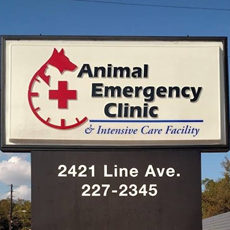Library
-
People often confuse the Cardigan Welsh Corgi with the Pembroke Welsh Corgi, but the tail of the Cardi (or lack thereof with the Pem) is a dead giveaway. These long-bodied, vertically-challenged dogs are confident individuals who, like many herding breeds, are somewhat reserved with strangers but totally devoted to their families and chosen friends.
-
Cardiomyopathy in Cats
Cardiomiopatía es el término usado para describir las enfermedades de la musculatura del corazón. En gatos, existen tres tipos de cardiomiopatías: hipertrófica, dilatada, y intermedia o restrictiva. En todos estos tipos, la enfermedad cardíaca acaba provocando signos de fallo cardíaco. Una cardiomiopatía puede presentarse como una enfermedad primaria o secundaria a otra enfermedad.
-
Cardiomyopathy is a term used to describe diseases of the heart muscle. In cats, three classes of cardiomyopathy have been described: hypertrophic, dilated, and intermediate or restrictive cardiomyopathy. In the early stages of disease, the cat may not show any signs. Heart disease can be suspected based on clinical signs, chest X-rays, and electrocardiography (ECG). The long-term prognosis for a cat with cardiomyopathy is variable, and depends on the cause of disease.
-
Chameleons are fascinating pets with bright colors and eyes that can rotate 360 degrees. Chameleons range in size from 0.9 inches to 27 inches long. They require special considerations in relation to their cage set-up and diet. Most chameleons do well on a cricket, mealworm, or waxworm-based diet. All chameleons require UVB lighting, a heated cage environment, and humidity of 60%-90%.
-
Vaccines save lives and prevent disease but can have some mild common side effects. Other less common but more serious side effects can occur within minutes to hours after vaccination. These reactions are considered medical emergencies, and you should seek veterinary care immediately if you suspect your pet is having a more serious reaction.
-
Sometimes, the location of your cat's wound or the amount of skin lost can prevent surgical closure or bandaging. This handout describes general guidelines for proper care of your cat's open wound at home, though your veterinarian can provide you with specific instructions.
-
Sometimes, the location of your dog’s wound or the amount of skin lost can prevent surgical closure or bandaging. This handout describes general guidelines for proper care of your dog's open wound at home, though your veterinarian can provide you with specific instructions.
-
The general instructions for incision care are the same for all surgical incisions. There may be some differences, however, depending on the type of surgery and the material used to close the incision. This handout is a guide to caring for your cat's surgical incision(s) at home for optimal recovery.
-
The general instructions for incision care are the same for all surgical incisions. There may be some differences, however, depending on the type of surgery and the material used to close the incision. This handout is a guide to caring for your cat's surgical incision(s) at home for optimal recovery.
-
Raising orphan puppies requires great care, time, and vigilance. Puppies must be kept at appropriate temperatures and humidity levels. Orphaned puppies need to be fed appropriate amounts of a commercial puppy milk replacer at regular intervals and can be fed by bottle or feeding tube. This article provides care guidelines. A veterinarian should be consulted early and frequently throughout the first 6–8 weeks of life.




